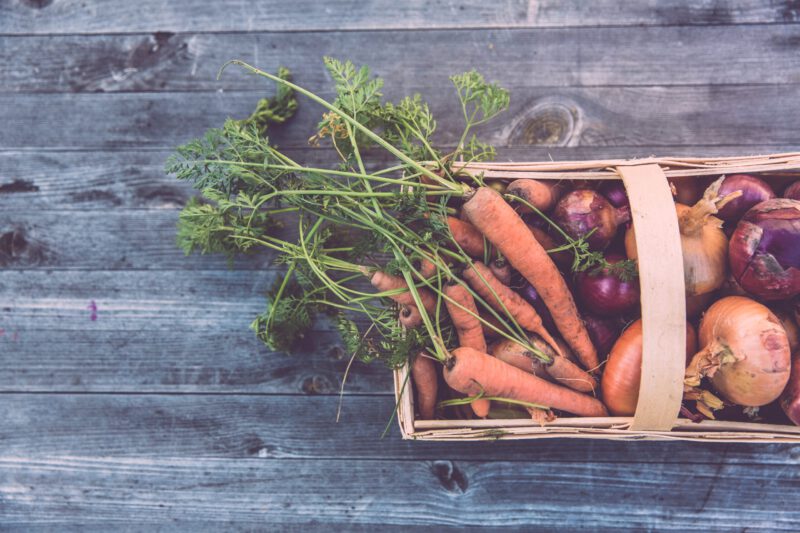How to store vegetables and fruits to avoid food waste
CONTENTS:
The problem of food waste is becoming increasingly public. It affects many countries, including, unfortunately, Poland. According to the Food Waste Rationalization and Reduction Program, approximately 5 million tons of food are wasted in Poland every year, up to 60% of which comes from household waste. We still overbuy, underuse it, and some food is wasted due to improper storage. Currently, we have unlimited access to almost every type of food in our country. Exotic fruits and vegetables are at your fingertips. However, we don't always know how to store them properly.
Why you shouldn't waste food
There are many reasons for this, and one of the most obvious seems to be the awareness that a billion people in the world are going hungry while we waste food. Food waste is a problem in industrialized countries. However, moral reasons aren't the only reason we should learn not to waste food. There's also the economic problem—we're throwing away food we've previously paid for, and the environmental problem—by throwing away wasted food, we unnecessarily produce more waste.
In times of mass consumption, we're used to throwing away food. It seems like the norm, but new cultural trends for a more ecological lifestyle and movements like minimalism, zero-value, and less-value are coming to the rescue.
Ways to store fruit and vegetables to keep products fresh longer
Along with bread, fruit and vegetables are the most commonly wasted foods. We often don't think about the conditions under which we should store fruit and vegetables at home. And it turns out that the storage of individual products is very important to preserve their freshness, flavor, and nutrients for as long as possible. For example, some can't tolerate the cold of the refrigerator, while others can't survive the day without it. Some can be washed immediately after use, while others are better washed right before eating. The spoilage rate of fruit and vegetables is primarily influenced by:
- the way they are stored,
- Temperature,
- Natural gas, which some of them emit.
This natural gas affects the ripening process, not only in the fruits that produce it, but also in the fruits stored with them. When we frequently buy unripe, greenish bananas or hard avocados, we often want to speed up the ripening process, but if we plant these fruits with pears, for example, the pears will overripe before the bananas turn yellow. Some vegetables, such as tomatoes, don't like the company of other vegetables, as their delicate skin and flesh also begin to spoil quickly. Therefore, we should store some vegetables and fruits separately. These include:
The following fruits and vegetables should be kept in the refrigerator to keep them fresh longer:
- grenades,
- cherries,
- berries,
- raspberries,
- strawberries,
- Grapes,
- Broccoli,
- Brussels sprouts,
- Peas,
- kale ,
- cauliflower,
- cabbage,
- corn cobs,
- Coriander,
- Carrot,
- Parsley,
- Leek,
- lamb's lettuce,
- arugula,
- lettuce,
Although we might think the refrigerator is the best place for fruits and vegetables, the low temperature is definitely not good for some of them if we're concerned with keeping them fresh for as long as possible. They lose their flavor, aroma, and minerals. Parsley, chives, and dill don't lose their properties, but they easily absorb other scents. Fruits and vegetables that are best stored at room temperature include:
- bananas,
- Citrus fruits (grapefruits, lemons, oranges, tangerines),
- apples,
- melons,
- eggplants,
- sweet potatoes,
- Onion,
- Zucchini,
- Garlic,
- Pumpkin,
- cucumbers
- tomatoes
- Potatoes and yams.
Vegetables like potatoes, sweet potatoes, carrots, parsley, leeks, and celery are best stored away from direct sunlight. They used to be stored in pantries and cellars. If we don't have such spaces at home, a closed cupboard will suffice. Remember that neither vegetables nor fruit should be stored in plastic bags. Potatoes, for example, can be wrapped in linen or cotton bags.
Proper storage of fruits and vegetables can prevent us from throwing away spoiled food. However, remember that even if a dark spot appears on a banana peel or an apple peel becomes slightly wrinkled, that doesn't mean we have to throw them away. They are still wholesome products. If we don't like eating such "unsightly" fruits and vegetables, they are excellent for fruit and vegetable cocktails, smoothies, juices, or compotes. Only throw them away if you notice even the slightest mold.
THE PUBLISHER'S CHOICE
Dried plums 1 kg BIOGO
- £6.08
- £6.08
- Prezzo unitario
- / per
Dried White Mulberries 500 g ORGANIC
- £5.06
- £5.06
- Prezzo unitario
- / per
Almonds 1 kg BIOGO
- £10.14
- £10.14
- Prezzo unitario
- / per
Cranberries sweetened with apple juice organic 1 kg BIOGO
- £14.20
- £14.20
- Prezzo unitario
- / per
Dried dates 1 kg BIOGO
- £3.65
- £3.65
- Prezzo unitario
- / per
Unpeeled buckwheat groats 1 kg BIOGO
- £2.44
- £2.44
- Prezzo unitario
- / per
Walnuts 800 g BIOGO
- £7.50
- £7.50
- Prezzo unitario
- / per
Peeled sunflower seeds 1 kg BIOGO
- £2.64
- £2.64
- Prezzo unitario
- / per
PULLED ORGANIC SUNFLOWER SEEDS 1 KG BIOGO
- £3.85
- £3.85
- Prezzo unitario
- / per












































































































































